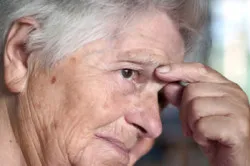
Due to the high percentage of U.S. coronavirus deaths that have been linked to nursing homes and assisted living facilities, many families are becoming aware of a second epidemic affecting elderly communities: nursing home negligence.
What Are Assisted Living Facilities?
Assisted living facilities are housing communities that allow people who require varying levels of personal or medical care to live partially independently. While nursing homes often provide a high level of personal care for residents, including assistance with bathing, dressing, eating, and using the bathroom, assisted living facilities provide tailored assistance based on the residents’ individual needs. Some residents may require a high level of care, while others may be more independent.
Common services offered by nursing homes and assisted living facilities include providing meals to residents, monitoring medications, assisting with dressing and bathing, housekeeping, laundry, medical care, emergency care, and scheduled social activities.
How Much Do Assisted Living Facilities Cost?
Assisted living and nursing home facilities may be very expensive. In 2018, the average cost to live at one of these centers was $4,000 a month. Expensive facilities may cost as much as $7,000 a month; even the cheapest homes may still cost $2,000.
Nursing homes may justify this high price tag by comparing the cost of living at the facility with the costs of a mortgage and in-home care. However, although nursing homes are intended to be a safe place for elderly family members to stay, many of these facilities have been accused of committing nursing home negligence.
 What is Nursing Home Negligence?
What is Nursing Home Negligence?
Nursing home negligence may take several forms. According to the CDC, there are six categories of elder mistreatment, including physical abuse, emotional abuse, sexual abuse, financial abuse, neglect, and abandonment.
While some abuse may be purposeful, other abuse may occur due to negligent hiring, understaffing of facilities, or inadequate training. However, any abuse or negligence that harms nursing home residents is wrong and should be prevented.
Signs of potential abuse or negligence may include malnutrition, unexplained weight loss, unexplained bruising or injuries, withdrawal from family or social support system, development of bed sores or skin ulcers, poor hygiene, unsanitary living conditions, dirty bedding or clothing, missing personal items, or unexplained financial charges.
Another sign of nursing home neglect may be the development of illnesses. Due to the widespread coronavirus pandemic, it is imperative that nursing home workers take steps to protect vulnerable residents from being exposed to the potentially deadly virus.
Moreover, as prevention of coronavirus often includes isolation and prevention of visitors, it is also important for family members to check in on their loved ones by phone.
How Can Coronavirus Be Prevented in Assisted Living Facilities?
According to the New York Times, 43 percent of deaths due to the coronavirus in the U.S. have been linked to nursing homes and other assisted living facilities. As of late June 2020, more than 282,000 people at approximately 12,000 elder care facilities had contracted the condition, with at least 54,000 people dying due to the virus.
Due to the high danger posed to elderly communities by the contagious respiratory illness, it is important for nursing homes to take steps to prevent the condition from occurring.
In order to prevent coronavirus cases from overtaking assisted living communities, the CDC has recommended that these communities frequently test residents and workers, take their temperatures each day, and ask about potential symptoms or exposures. Workers are also expected to wear masks during their shifts, and residents may be expected to wear masks if they leave their rooms.
Workers who test positive or who are displaying potential symptoms are recommended to stay home, and residents who may be infected with the condition may need to be isolated to prevent the condition from spreading. Additional hygiene protocols, including regular hand washing or the use of hand sanitizer, may also be implemented, as well as protocols limiting visitors from physically visiting the facilities.
Nursing homes and assisted living facilities that fail to comply with these guidelines and protect residents from contracting coronavirus may be committing negligence. Lawmakers intend to hold facilities responsible for COVID-19 nursing home deaths
How to Find a Lawyer for Nursing Home Neglect
If you believe that your loved one is a victim of nursing home abuse or neglect, you may be eligible to speak with an experienced attorney about your legal options. In cases where your loved one has died, you may be able to collect compensation for wrongful death. Top Class Actions has partnered with experienced attorneys to make the process of finding a lawyer to review your case as smooth as possible.
Join a Free Nursing Home Coronavirus Death Class Action Lawsuit Investigation
If your family member died from the coronavirus while in a nursing home or assisted living facility, you may qualify to file a nursing home wrongful death lawsuit.
This article is not legal advice. It is presented
for informational purposes only.
ATTORNEY ADVERTISING
Top Class Actions is a Proud Member of the American Bar Association
LEGAL INFORMATION IS NOT LEGAL ADVICE
Top Class Actions Legal Statement
©2008 – 2026 Top Class Actions® LLC
Various Trademarks held by their respective owners
This website is not intended for viewing or usage by European Union citizens.















One thought on How Can Assisted Living Facilities Prevent Coronavirus Outbreaks?
I would like to file a lawsuit against Pennsylvania state governor wolf for not letting us in to see our loved ones in a nursing home some have died some I’ve gone into a great depression not to mention the family holding us back from our loved ones is the worst kind of torture anybody can with stand